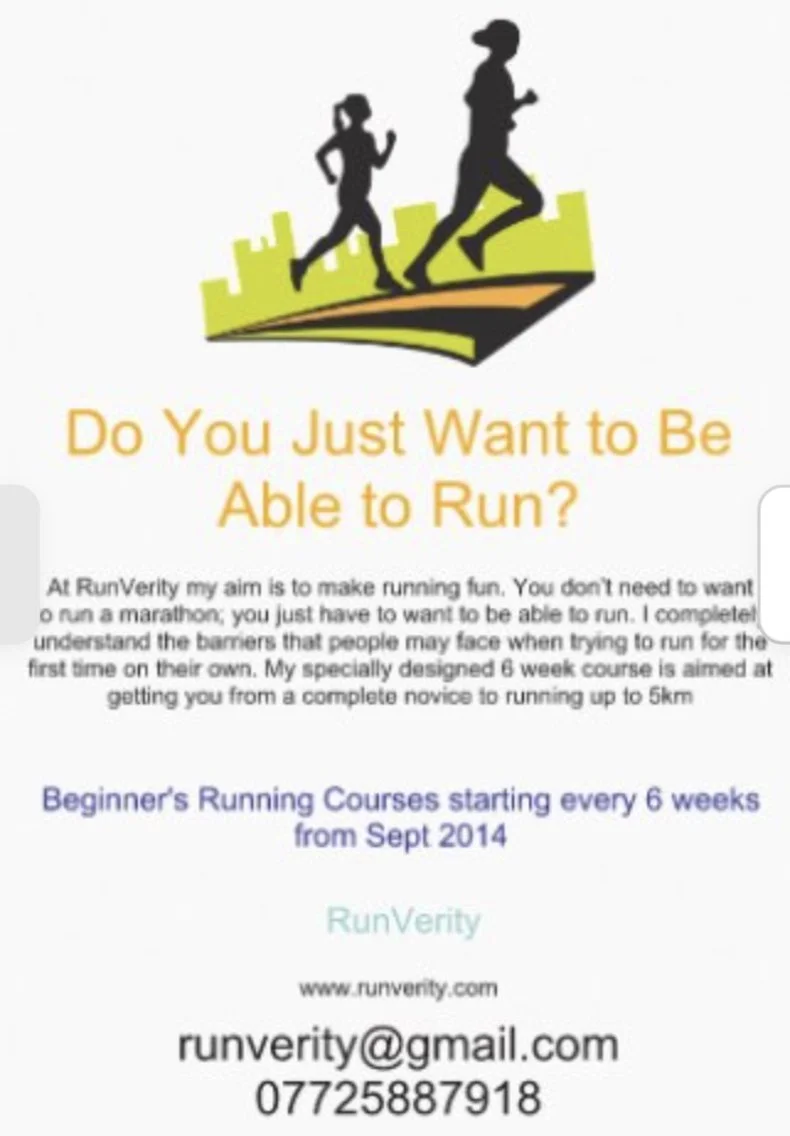What Do You Wish You'd Known About Running?
I’ve written a lot this year, since starting this Substack, about how the world of running has changed, how commercialised it has all become. I’ve wondered if this has led to people (especially those who have just started running or are getting back into after a long time away) to feel excluded, as though they don’t belong, potentially reinforcing their story that they’re not a runner and never will be, ultimately dropping out of running all together. I’ve seen it first hand.
I started thinking that yes, ok, running may have changed-but I’m not sure, fundamentally, runners have.
As we head towards the end of 2024 (rather quickly!), I’m currently preparing and collating all my resources for the next RunVerity Beginner’s Running course starting in January, and it won’t surprise any of you that this is the busiest course of the year for me.
Part of my preparation has been to look back over all my old notes, feedback forms and pre-beginner’s questionnaires, and it struck me that running really is 99% mental strength and resilience. After all these years (10+!) of working with complete beginners to running, I now understand, in a way I didn’t fully at the beginning, that whilst teaching the basics of running - from where to put your arms, to how to tell if you’ve set out too fast- teaching mental strength strategies is so much more important if you want to truly help people to keep running.
I know that the process of learning to run isn’t a simple one, everyone who turns up to their first session can feel like a child starting school, petrified and “pathetic” (runner’s own words), all influenced by their own biography, very often infused with historical poor experiences of physical activity, memories of loathing PE, their body insecurities, emotional and psychological anxieties; it comes as no surprise that the hardest part is literally getting out of the front/car door.
And the feelings are real, here’s just a small example of what previous member’s of the beginner’s course have worked up the courage to “admit” to me after:
“What pleasure would there be for anyone in the group to come running with me? …This is the third consecutive week I have been to the group and every week at this time I feel physically sick as my body kicks into flight mode…
“I’ve spent most of my life saying, I can’t run.”
“But none of the rest of the group look like beginners to me!”
“I thought, one, I’m too old. And two, well, I can’t run. So that’s it. I’m not going to be any good at it…”
“I thought, I would much rather sit in front of the TV this evening than do battle with my body, pushing it round a course, faster than it wants to go…”
As a coach, my most important question to myself now is always, where and how do I help people break down these barriers?
And so I thought this year, for my new beginner’s cohort, I’d collect and share some wisdom from some of my other members, and from my community here on Substack, about what they’d wish they known about running before they started.
When I started to think this for myself, about the things that have helped me to carve out and keep a 20 plus year running habit, this is what I’ve come up with so far:
Having a goal is important – but it’s not the most important thing.
Motivation should come from within – find your drive to start or keep on running.
Social support is essential– a running group’s support, especially after setbacks, can provide encouragement, understanding all in a non-judgmental environment.
You’re never too old to change your story – running can create new narratives that bring a sense of accomplishment and pride, plus you never know where it might take you.
You can use quite a lot of energy trying to think of a way out of running, sometimes it’s just easier to go running.
Listen to your body so you start to understand the difference between “regular”, physical discomfort or injury – pain/injuries can make running difficult and unenjoyable.
You might feel that you lack running ability, that you’re not skilled or fit enough to run, but this is just a perception.
Celebrating small success’ whilst focusing on the process and not just performance builds confidence.
You will need strategies to overcome barriers like time constraints, it can be challenging to fit running into an already busy schedule, but it is possible.
Going through the RunVerity archives, I found my first ever promotional poster from July 2014- here is what I wrote:
“At RunVerity my aim is to make running fun. You don’t need to want to run a marathon; you just have to want to be able to run. I completely understand the barriers that people may face when trying to run for the first time on their own. My specially designed 6 week course is aimed at getting you from a complete novice to running up to 5km”
Reading this ten long years and many lessons later, I was quite moved and (dare I say it) proud, that the words still resonate with the ethos and culture that we have created within our club.
And so, whilst I’ll be teaching the physical basics in January (usually on wet, cold and dark evenings) I’ll be spending just as much time sharing all the mental skills needed to build a long-term relationship with running; strategies, support, goals, beliefs, motivation and drivers. Running isn’t just for January, and if I can get it right, it’s built for life.
So, fellow runners, please can you help me out by passing on your own hard won wisdom to keep my new runner’s inspired- what do you wish you’d known before you started running?


